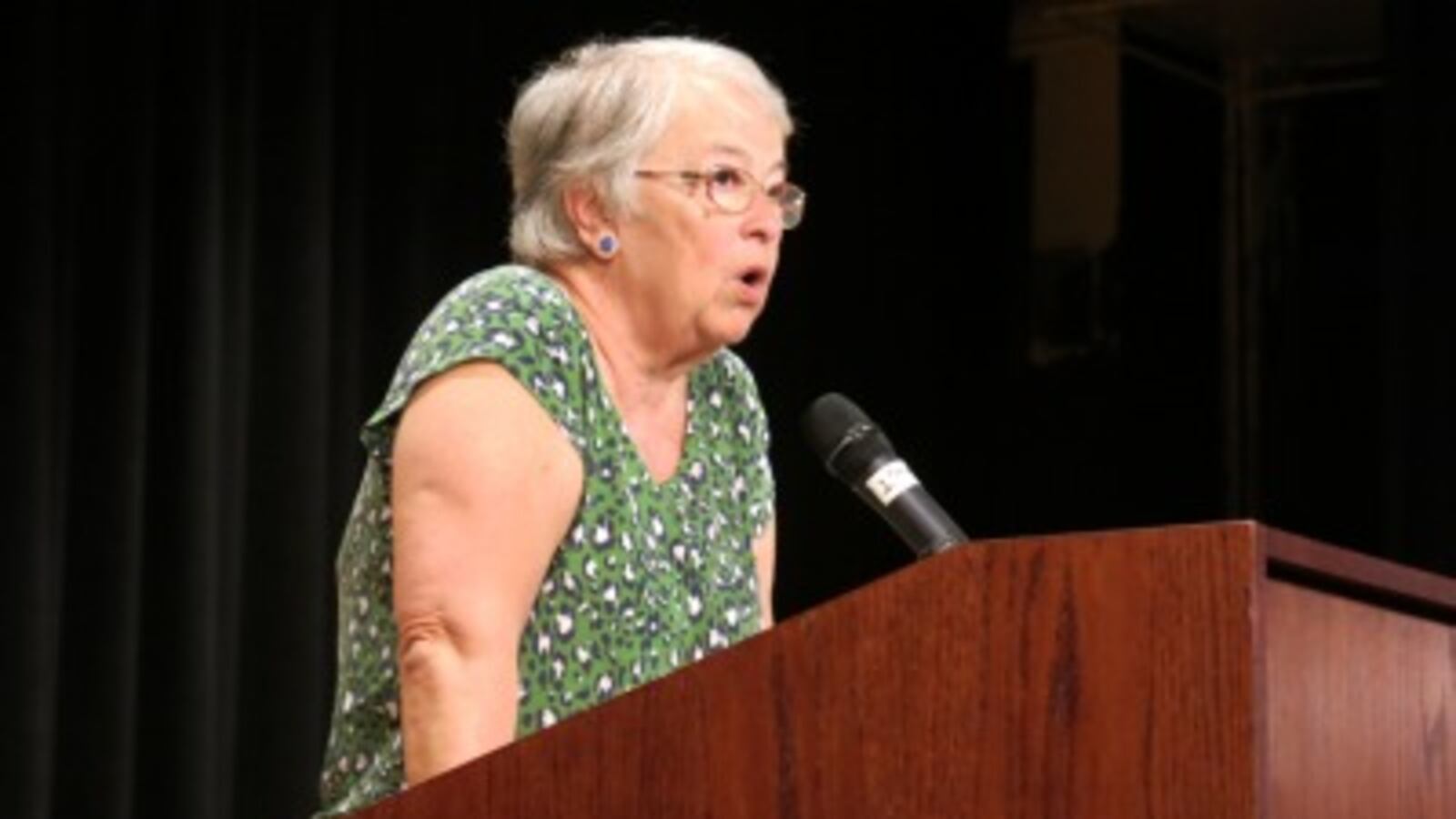The city is revamping the way it rates schools, putting less emphasis on test scores and getting rid of the A-to-F school letter grades, according to a news report that appeared shortly before Chancellor Carmen Fariña is set to give a major policy address Wednesday morning.
Instead of issuing schools annual progress reports with an overall letter grade, as the city has done since 2006, the education department will now create separate reports for school leaders and for families, according to the report, which appeared Tuesday evening in the New York Times. Those school reports will eschew letter grades for categories like “not meeting target” or “exceeding target.” And they will factor in other measures of a school’s quality, such as the rigor of its courses and the results of parent and student surveys, to balance out student test scores, the Times article said.
Fariña has promised those changes for months, and they reflect Mayor Bill de Blasio’s campaign against the previous administration’s use of test scores as the primary way to judge schools and – when their scores were consistently low – to consider closing them. De Blasio and Fariña have both slammed the Bloomberg administration’s A-to-F school ratings as overly blunt and unreliable. Fariña even told a group of educators earlier this year that she hadn’t checked their schools’ letter grades “because I don’t care.”
Fariña has previously proposed merging the information included on the data-based progress reports with the findings of official reviewers who interview school faculty members and observe lessons. The new ratings system will reportedly give more weight to the findings from those visits, called “quality reviews.”
Meanwhile, the city is tweaking the quality review process so that more schools will receive visits this year, according to a person briefed on the plans. Some of the lowest-performing schools have been told to expect three formal reviews this year.
What is still unclear is how the city will use the new school ratings.
In the past, schools that received three consecutive failing grades on their progress reports could face closure. De Blasio has said closure will now be used only as a last resort, but he has not specified how the city will intervene at schools that are earn consistently low ratings. With the school year underway, educators and advocates have been calling for the city to detail its plan to improve troubled schools.
Behind the scenes, the city recently launched an intensive-support program for about two-dozen schools that were identified as struggling. The plan involves principal coaching, teacher training, and even a special superintendent to oversee the high schools. Two of those high schools will not be sent any new students during the year, since late enrollees can destabilize schools.
But that program only includes a fraction of the city’s low-performing schools. More than 370 schools saw 90 percent of their students struggle on last year’s state tests, according to a recent report by a pro-charter group that is demanding “bolder leadership” to improve those schools.
That group, Families for Excellent Schools, has paid for television commercials this week and is planning a major rally on Thursday to draw attention to those struggling schools. The group is aligned with major charter school networks, such as Success Academy, and one solution it offers for the problem of low-performing schools is to create more charter schools – an approach de Blasio has criticized.
Fariña is expected to give more details about the new school-rating system and her plans for struggling schools during her speech Wednesday at P.S. 503/P.S. 506 in Sunset Park, Brooklyn.


